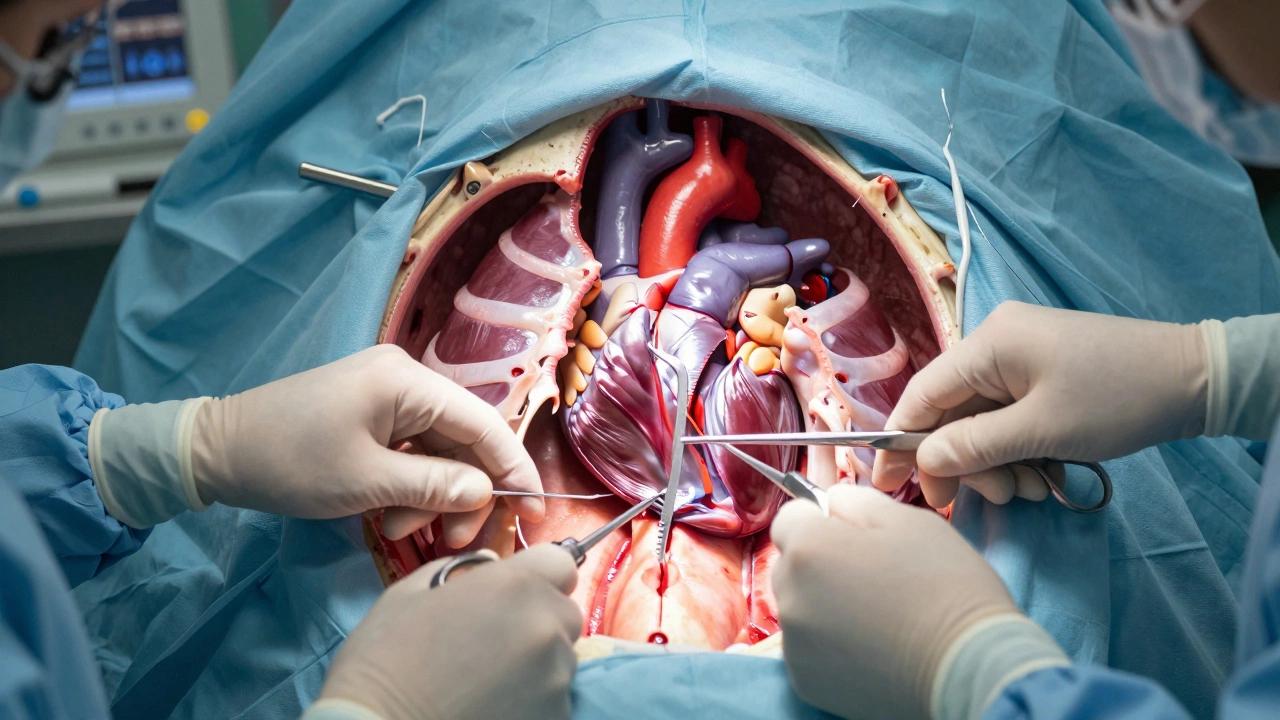Cardiac Surgery: What You Need to Know Before the Operation
Thinking about a heart operation can feel overwhelming, but knowing the basics makes it easier to face. Cardiac surgery covers any procedure that fixes or replaces a part of the heart, from bypass grafts to valve repairs. In India, most hospitals follow international standards, so you’re not alone in worrying about safety.
Preparing for Cardiac Surgery
First step is a thorough check‑up. Your surgeon will order blood tests, an ECG, and imaging like an echo or CT scan to map out the problem. Ask the doctor to explain why a particular surgery is recommended and what alternatives exist. Knowing the reason helps you decide if the benefits outweigh the risks.
Next, clean up your meds. Some blood thinners, herbal supplements, and even certain painkillers can increase bleeding. Write down everything you take and share it with the medical team. They’ll tell you which ones to stop and when to pause them.
Nutrition plays a big role, too. A diet rich in protein, fruits, and vegetables speeds up healing after the incision. If you’re a smoker, quit at least two weeks before the date – it improves lung function and cuts infection chances.
Finally, arrange help at home. You’ll need someone to drive you, pick up prescriptions, and assist with chores for the first few days. Knowing you have support reduces stress and lets you focus on recovery.
Recovery After Heart Surgery
When you wake up from anesthesia, the first goal is pain control. Ask about a pain plan that mixes medicines with short‑term breathing exercises. Deep breaths and gentle coughing keep the lungs clear and prevent pneumonia.
Walking is the next big milestone. Even a short stroll around the ward on day one lowers the risk of blood clots. Gradually increase the distance – most patients can walk a few blocks by week two.
Incision care is simple but vital. Keep the area clean, dry, and watch for redness or drainage. If you notice anything unusual, call your surgeon right away.
Diet after surgery shifts back to normal within a week, but keep it heart‑healthy: limit saturated fats, stay hydrated, and eat small, frequent meals. If you were on a low‑salt regimen before, continue it to control blood pressure.
Follow‑up visits are not optional. Your doctor will check the heart’s function with an echo and adjust medicines as needed. Stick to the schedule – it catches complications early.
Most people return to light activities within six weeks and full work after three months, depending on the type of surgery. Listen to your body; if you feel excessive fatigue or chest pain, rest and seek advice.
Remember, cardiac surgery is a team effort. Your surgeon, anesthesiologist, nurses, and physiotherapists all aim for a smooth outcome. By staying informed, preparing well, and following post‑op instructions, you give yourself the best shot at a quick, safe recovery.

Do They Have to Break Your Ribs for Open Heart Surgery?
Open heart surgery doesn't break your ribs-it splits your breastbone. Learn how the procedure works, what to expect during recovery, and the modern alternatives that are changing heart surgery today.

Do They Really Break Your Ribs in Modern Open-Heart Surgery?
Are ribs still broken in open-heart surgery? Uncover how modern technology and new techniques have transformed the patient experience and outcomes for cardiac procedures.

How Rare Is It to Survive Open Heart Surgery?
Ever wondered just how risky open heart surgery really is? This article breaks down survival rates, common myths, and what actually helps people pull through such a major operation. You'll see how modern medicine has changed the odds and why age and health matter way more than you think. There are real-life tips to boost your chances if you ever have to face the operating room. It's the real scoop—straight talk with facts, not fear.




